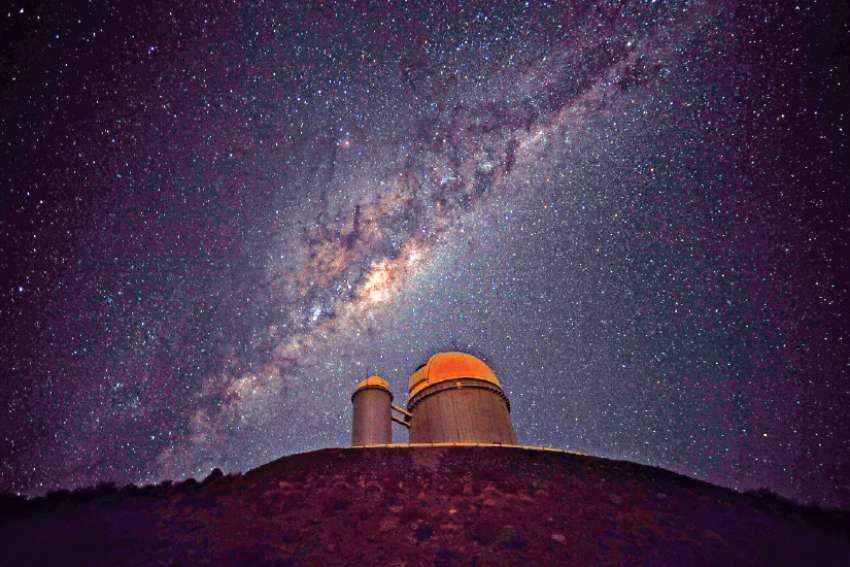At summer camp, fear of the dark comes up surprisingly urgently for many (not only the children). Each summer, I help run a youth camp out in the country, where no neon or street lamps go. It can be hard on those who think they’re too old to be scared of the dark.
Camper Gordon, one year, was unnerved by his fears and they came out sideways. He would walk off on his own during activities, pick quarrels with others, or be sullen and listless at meals. When called back to the group, he would bring his body, but the light in him was snuffed out. Where was the sparkle in his eyes? Hidden in his fear of darkness, and his shame about that fear.
Camp leaders took him aside one day. They named his behaviours without animosity and heard his fears without mockery. They urged him not to cope, survive and then go back home unchanged, but to dig deep inside himself and find the way to really be there. They asked him to take the risk. He listened, and did. Somehow he met his inner fire and came to life at camp, not as a bully or silent sulker, but as Gordon.
One night of camp always features stargazing, allowing campers to see what’s always there but mostly can’t be seen in urban places, and discover they are part of something larger than themselves.
Gordon went out in the dark with the others and for the first time saw the Milky Way. By listening to his inner voice, he was able to get to the whole universe.
The camp leaders didn’t create Gordon’s true self. They couldn’t prove he had an inner light or make him switch it on. They couldn’t provide evidence that would turn on the light for him, or make it risk-free to try. They could, and did, create a space for him to find out for himself.
Currently, we have a passion for “evidence-based” everything, from health care to diet. I’ve even heard talk of “evidence-based spirituality.” Can there really be such a thing? Does the “evidence” give us answers? It’s tempting to keep amassing evidence and never learn.
Evidence is important in its place, but can’t do our work for us. We find answers as we relate with our world and take the risk to dig into it. We learn to better interpret and understand what is by engaging with it. That’s as true of spirituality as everything else.
The desire for evidence is understandable. Our lives depend on it. We all need safety, and the world is dangerous. Rushing to act without pausing to learn can be fatal. Gordon’s fear of darkness, and the human fear of the unknown, are reflections of the way things are.
The people in Jesus’ day asked for evidence, too. They asked for signs, wonders and Scriptural proofs. When they got them, they asked for more proofs. Evidence-gathering is a crucial tool of learning. Still, asking evidence to prove things for us is like asking evidence to live our lives for us. Only we can do that.
We live our spirituality with our bodies, whether we realize it or not. Faith is practical.
We need to push through and discover things, ask better questions, and ask them of everything — including our faith. It’s part of our nature and how we learn. It’s not helpful to follow unthinkingly or limply accept spiritual ideas as though they don’t take flesh in the world.
Real spirituality does take flesh. Therefore we need to test the limits, like Gordon and the other campers going out into the starry night. This helps us get bigger and go to bigger places. Science and faith move together, not apart.
As our society is getting more polarized, we might be inclined to distrust each other — those of us who look for evidence and those of us who prefer the unmeasurable. But these may not be opposed impulses after all. We may find it’s a tension that’s not only between us, but inside us.
We can ask God to help us hold the tension between faith as foundation and ever-deepening questioning to guide us through light and dark.
So let’s go ahead and search for proof about what really matters in life. That search will lead us and help us move from where we are. We won’t find risk-free answers, but will get to the limits of what can be tested and proven, and we will have travelled somewhere.
The only way to get further is to go beyond what we know and take the leap based on something else, something that can’t be seen or touched or measured. Faith.
All, in fact, is based on faith — even atheism. Faith is the real “evidence base.” By it we see dimly, but we see what is and we shall see it truly when we are face-to-face with God (1 Corinthians 13:12).
(Marrocco can be reached at marrocco7@sympatico.ca)


